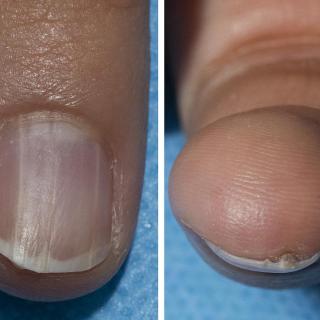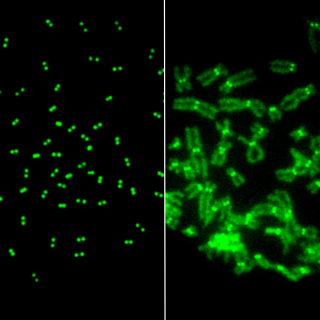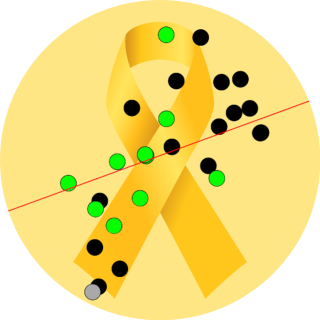News and Events
Proteins Released from the Nuclei of Dying Cancer Cells Promote Tumor Growth
Material released from dying cancer cells, known as tumor cell nuclear expulsion products (TuNEPs), contains specific proteins that promote the growth of neighboring cancer cells. Targeting these proteins could lead to new treatments that hinder cancer spread and improve patient outcomes.
Read MoreMaster regulators flip the switch on neuroblastoma’s developmental state
Waves of regulatory changes can transform self-renewing neuroblastoma cells into neurons.
Read MoreBenign nail condition linked to rare syndrome that greatly increases cancer risk
Researchers from CCR and the National Institute of Arthritis and Musculoskeletal and Skin Diseases (NIAMS) discovered the presence of a benign nail abnormality may lead to the diagnosis of a rare inherited disorder that increases the risk of developing cancerous tumors. The study suggests conducting nail evaluation of affected patients and at-risk family members.
Read MoreNew AI tool classifies brain tumors using images of tumor slides
A new artificial intelligence model has been found to be highly effective at identifying brain tumor subtypes — with 95% accuracy — simply by analyzing a standard pathology image of the tumor tissue.
Read MoreNew research identifies a protein essential to maintaining chromosomal stability
Researchers discovered how overproduction of a protein called CENP-A can lead to chromosomal abnormalities, which are found in many types of cancer.
Read MoreNew database of sarcoma cell line data will drive rare cancer research
CCR researchers have developed the largest publicly accessible sarcoma cell line database called Sarcoma CellMinerCDB. The tool merges previously available and new sarcoma cell line data that can be used to identify new therapeutic targets for these cancers.
Read MoreClinical trial researching combination therapy for solid tumors
A trial led by Steven A. Rosenberg, M.D., Ph.D., Chief of the Surgery Branch, is researching white blood cell gene therapy and vaccine therapy for certain metastatic cancers.
Read MoreThree CCR researchers elected to the National Academy of Sciences
Steven A. Rosenberg, M.D, Ph.D., Chief of the Surgery Branch, Giorgio Trinchieri, M.D., Chief of the Laboratory of Integrative Cancer Immunology, and Sandra L. Wolin, M.D., Ph.D., Chief of the RNA Biology Laboratory, were elected as 2024 members of the National Academy of Sciences in recognition of their distinguished and continuing achievements in original research. The Academy is committed to furthering science in America, and its members are outstanding contributors to the international scientific community.
Read MoreClinical trial researching detection methods for multiple myeloma
A trial led by Elizabeth M. Hill, M.D., Assistant Research Physician in the Lymphoid Malignancies Branch, is studying a radiotracer that may be a useful detection method for multiple myeloma.
Read MoreJung-Min Lee elected to the American Society for Clinical Investigation
Jung-Min Lee, M.D., Senior Investigator in the Women’s Malignancies Branch, was elected to the American Society for Clinical Investigation. The organization seeks to support scientific efforts, educational needs and clinical aspirations of physician-scientists to improve the health of all people. Lee was selected for her merit as an internationally recognized expert in ovarian cancer and for being a highly respected clinician and physician-scientist.
Read MoreCCR researchers receive a range of HHS awards
Three CCR researchers received prestigious awards from the Department of Health and Human Services. They are being recognized for their excellence, dedication and achievements in their respective research fields.
Read More








